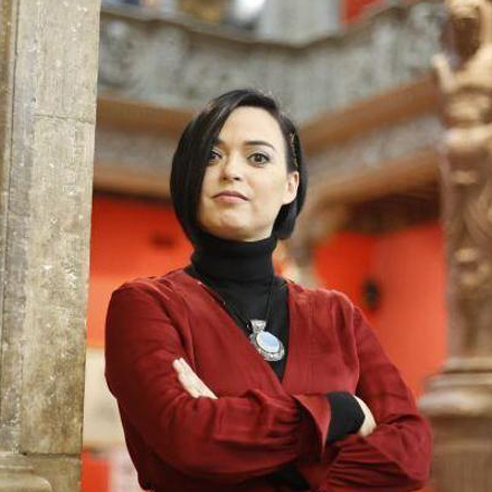Lucía C. Pérez-Moreno is a Professor of History and Theory of Architecture at the University of Zaragoza in Spain, and Visiting Professor at KU Leuven (Bélgium). She holds a Ph.D. in Architecture from the Polytechnic University of Madrid (2013), a Master of Science in Advance Architectural Design from Columbia University in the city of New York (2008), and postgraduate studies from Helsinki University of Technology (2004). She is a licence Architect and Urban Planner from University of Navarra since 2003, where she finished her studies with the Extraordinary Prize and the 2nd National Prize for University Studies in Spain. Since 2017, she coordinates the Series of Meetings ‘Gendered Perspectives in Architecture’ and edited their subsequent books published by the Spanish editorial Abada (2018, 2019, 2021). From 2019 to 2022, she has been the Group Leader of the Research Grant MuWo‘Women in Spanish (post)Modern Architecture Culture, 1965-2000’ funded by the Spanish Ministry of Science and Innovation. One result of this project is the #ArquitectasenelMapa platform, documenting the contributions of women architects to the Spanish built environment since the 1960s. She also coordinated the 1st Spanish Conference on Women & Architecture (Towards an Egalitarian Profession), which was funded by the Spanish Ministry of Equality in 2021. She edited three special collections on Feminist Theory and Architecture:Becoming a Gender Equity Democracy: Women and Architecture Practice in Spain and Portugal (1960s–1980s) (Arts9, 2020), edited with Patrìcia Santos-Pedrosa (University of Beira Interior), Architectural Historiography and Fourth Wave Feminism (Architectural Histories8, 2020), edited with Torsten Lange (ETH), and Women, Feminist Practices and Alternative Practitioners (Zarch18, 2022), edited with Ann E. Komara (Colorado University-Denver). In 2021, she received the ‘Celia Amorós’ Award for Excellence in Research in Gender Studies and Architecture (Aragón Investiga Program, Government of Aragón, Spain). She is also a member of AMIT (Association of Women Researchers and Technologists), AECA (Spanish Association of Art Critics), PMAC (Platform of Women in Contemporary Art), and EAHN (European Architectural History Network).
